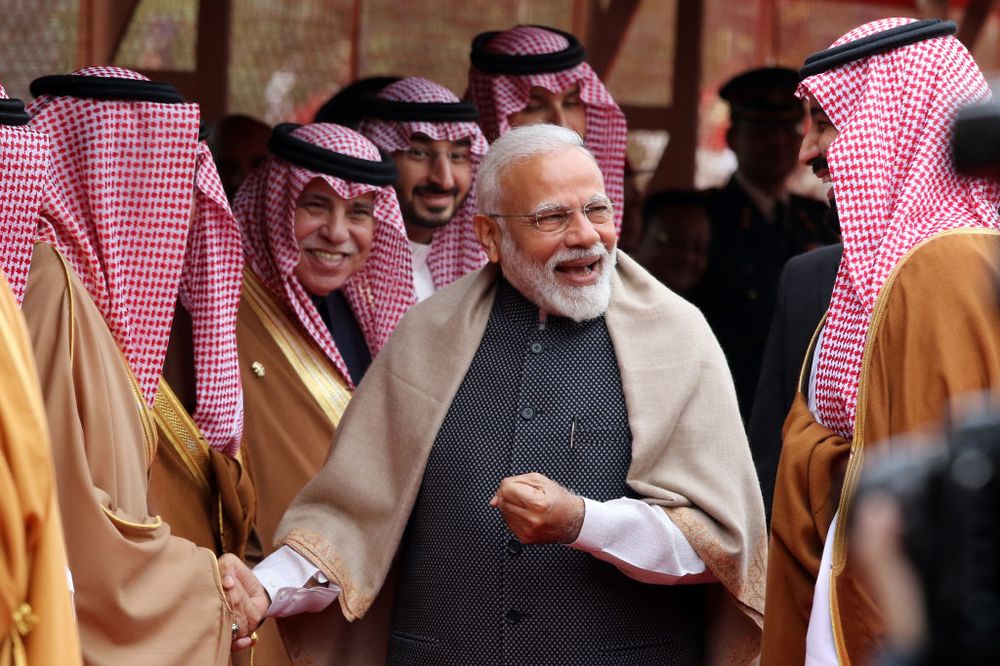《社論》
India’s election
印度大選
Agent Orange
橙劑
Under Narendra Modi, the Bharatiya Janata Party poses a risk to democracy
在納倫德拉•莫迪的領(lǐng)導(dǎo)下,印度人民黨對民主構(gòu)成了威脅

When the Bharatiya Janata Party (BJP) won a landslide victory in India’s general election in 2014, its leader, Narendra Modi, was something of a mystery. Would his government initiate an economic lift-off, as businessfolk hoped, or spark a sectarian conflagration, as secularists feared? In his five years as prime minister, Mr Modi has been neither as good for India as his cheerleaders foretold, nor as bad as his critics, including this newspaper, imagined. But today the risks still outweigh the rewards. Indians, who are in the midst of voting in a fresh election, would be better off with a different leader.
印度人民黨(BJP)在2014年的大選中獲得壓倒性勝利時,其領(lǐng)導(dǎo)人納倫德拉莫迪還是個謎。他的政府會像商人們所希望的那樣開啟經(jīng)濟騰飛,還是像世俗主義者所擔(dān)心的那樣引發(fā)宗派沖突? 莫迪擔(dān)任總理的5年里,既不像支持者所預(yù)言的那樣對印度有利,也不像包括本刊在內(nèi)的批評者所想象的那樣糟糕。但今天,風(fēng)險仍然大于回報。印度正在進行一場新的選舉投票,如果換一個領(lǐng)導(dǎo)人會更好。
Mr Modi is campaigning as a strongman with the character to stand up to Pakistan for having abetted terrorism. In fact, sending warplanes to bomb India’s nuclear neighbour earlier this year was not so much an act of strength as recklessness that could have ended in disaster. Mr Modi’s tough-guy approach has indeed been a disaster in the disputed state of Jammu&Kashmir, where he has inflamed a separatist insurgency rather than quelling it, while at the same time alienating moderate Kashmiris by brutally repressing protests.
莫迪在競選活動中以一個鐵腕人物的形象出現(xiàn),以他的性格是直接反抗巴基斯坦煽動恐怖主義。事實上,今年早些時候派遣戰(zhàn)機轟炸印度的核鄰國的舉動,與其說是一種實力之舉,還不如說是一種魯莽之舉,最終可能以災(zāi)難告終。莫迪的強硬態(tài)度在有爭議的克什米爾邦確實是一場災(zāi)難,在那里,他不僅沒有平息分裂主義叛亂,反而煽動了分裂主義叛亂,同時因殘酷鎮(zhèn)壓抗議活動,疏遠了溫和派克什米爾人。
譯文由可可原創(chuàng),僅供學(xué)習(xí)交流使用,未經(jīng)許可請勿轉(zhuǎn)載。












